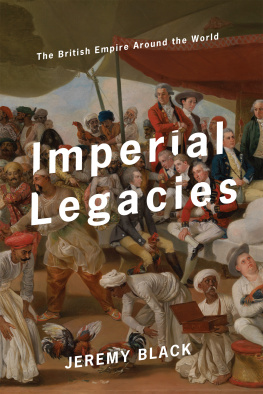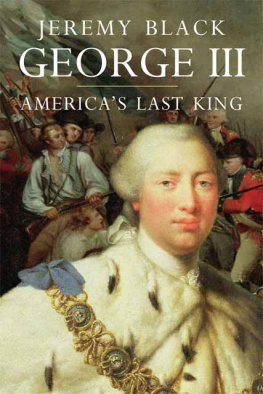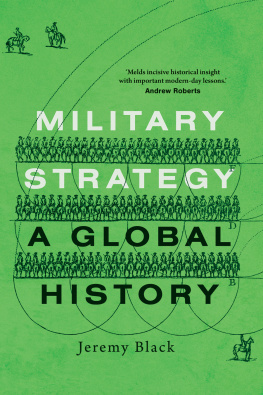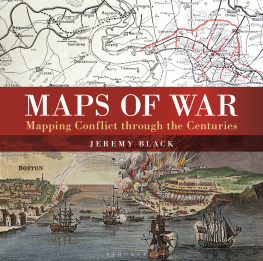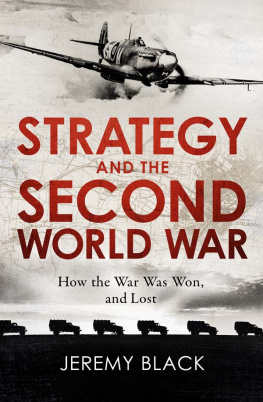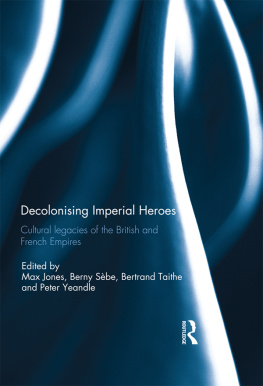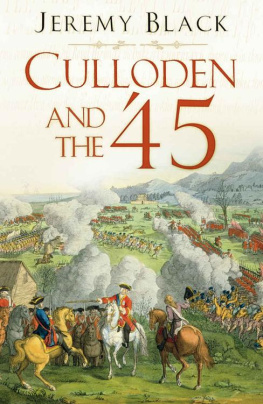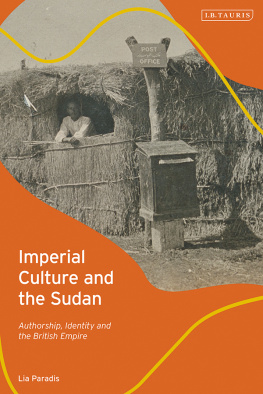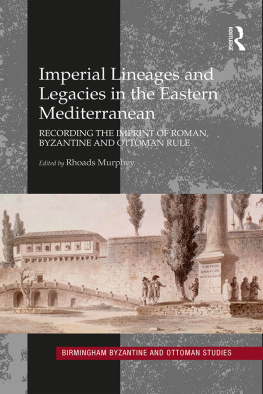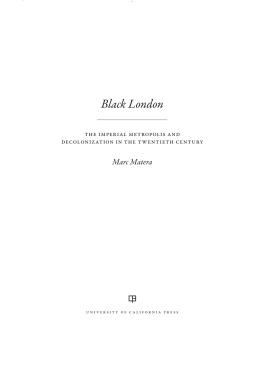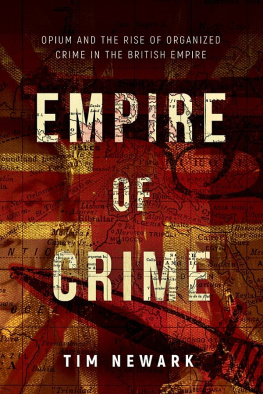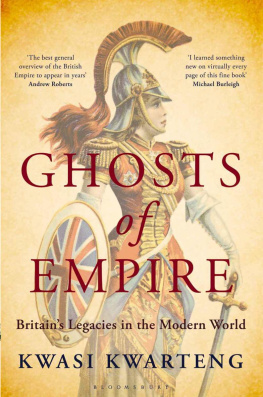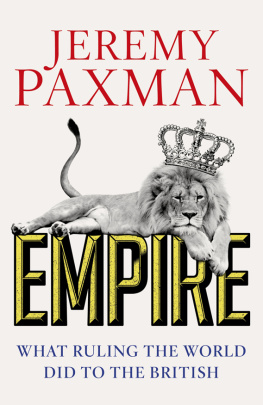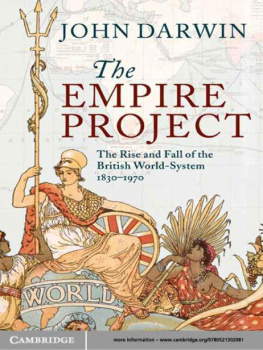Jeremy Black - Imperial Legacies: The British Empire Around the World
Here you can read online Jeremy Black - Imperial Legacies: The British Empire Around the World full text of the book (entire story) in english for free. Download pdf and epub, get meaning, cover and reviews about this ebook. year: 2019, publisher: Perseus Books, LLC, genre: Politics. Description of the work, (preface) as well as reviews are available. Best literature library LitArk.com created for fans of good reading and offers a wide selection of genres:
Romance novel
Science fiction
Adventure
Detective
Science
History
Home and family
Prose
Art
Politics
Computer
Non-fiction
Religion
Business
Children
Humor
Choose a favorite category and find really read worthwhile books. Enjoy immersion in the world of imagination, feel the emotions of the characters or learn something new for yourself, make an fascinating discovery.
- Book:Imperial Legacies: The British Empire Around the World
- Author:
- Publisher:Perseus Books, LLC
- Genre:
- Year:2019
- Rating:3 / 5
- Favourites:Add to favourites
- Your mark:
- 60
- 1
- 2
- 3
- 4
- 5
Imperial Legacies: The British Empire Around the World: summary, description and annotation
We offer to read an annotation, description, summary or preface (depends on what the author of the book "Imperial Legacies: The British Empire Around the World" wrote himself). If you haven't found the necessary information about the book — write in the comments, we will try to find it.
Imperial Legacies: The British Empire Around the World — read online for free the complete book (whole text) full work
Below is the text of the book, divided by pages. System saving the place of the last page read, allows you to conveniently read the book "Imperial Legacies: The British Empire Around the World" online for free, without having to search again every time where you left off. Put a bookmark, and you can go to the page where you finished reading at any time.
Font size:
Interval:
Bookmark:

IMPERIAL LEGACIES
The British Empire Around the World
Jeremy Black

2019 by Jeremy Black
All rights reserved. No part of this publication may be reproduced, stored in a retrieval system, or transmitted, in any form or by any means, electronic, mechanical, photocopying, recording, or otherwise, without the prior written permission of Encounter Books, 900 Broadway, Suite 601, New York, New York, 10003.
First American edition published in 2019 by Encounter Books, an activity of Encounter for Culture and Education, Inc., a nonprofit, tax exempt corporation.
Encounter Books website address: www.encounterbooks.com
Manufactured in the United States and printed on acid-free paper. The paper used in this publication meets the minimum requirements of ANSI/NISO Z39.481992
(R 1997) (Permanence of Paper).
FIRST AMERICAN EDITION
LIBRARY OF CONGRESS CATALOGING-IN-PUBLICATION DATA
Names: Black, Jeremy, 1955 author.
Title: Imperial legacies : the British Empire around the world / By Jeremy Black.
Description: New York : Encounter Books, [2019] | Includes bibliographical references and index.
Identifiers: LCCN 2018043853 (print) | LCCN 2018044783 (ebook) | ISBN 9781641770392 (ebook) | ISBN 9781641770385 (hardcover : alk. paper)
Subjects: LCSH: Great BritainColoniesHistory. | United StatesForeign relations. | Liberty.
Classification: LCC DA16 (ebook) | LCC DA16 .B587 2019 (print) | DDC 909/.0971241--dc23
LC record available at https://lccn.loc.gov/2018043853
For
Stephanie Speakman
CONTENTS
PREFACE
The United States can see its present and future reflected through the mirror of the treatment of the British Empire. This is Britain, but also the United States in its culture wars; culture wars that can be seen more clearly in the mirror of Britain. Much of the hysteria that greets the word imperialism relates to the United States, even if the ostensible target is Britain.
Mealtimes, institutional racism, and historical amnesia of British colonialism were all there in London on January 27, 2018, when a group of fourteen led by SOAS (School of African and Oriental Studies) students protested in the Blighty UK Caf in Finsbury Park, chanting, we have nothing to lose but our chains. They demanded that Chris Evans, the owner, apologise to the local community for commemorating Winston Churchill instead of presenting him as a racist who perpetuated the injustices of the empire. The caf offers a breakfast entitled the Winston and features dcor depicting model Spitfires and a mock-up of an air raid shelter. A change of dcor and menu was demanded. The SOAS Students Union, in a statement, declared that the caf exercises a concerted historical amnesia of British colonialism, which is offensive to those who continue to experience institutional racism. Earlier, a large mural of Churchill had been repeatedly defaced.
The phlegmatic Evans remarked, If you cannot celebrate Britain and great Britons you are just erasing history and if you cannot celebrate Churchill, you cannot celebrate anyone. This was especially so, given that in 2002, Churchill was voted as the Greatest Briton in a large-scale BBC poll. Subsequently, in March 2018, some of those involved took part in a violent blockade of the main SOAS building, their statement protesting at the white-supremacist hetero-patriarchal capitalist order of university life.
Meanwhile, in February 2018, the controversy was over Birmingham Museum and Art Gallerys exhibition The Past is Now, in which information boards claimed that the relationship between European colonialism, industrial production and capitalism is unique in its brutality. The key Birmingham politician of the Victorian period, Joseph Chamberlain, an exponent of a stronger British Empire who became secretary of state for the Colonies (18951903), was described as still revered despite his aggressive and racist imperial policy. One board attacked Britains hasty departure from India in 1947 for trauma and misogyny, and a second board offers another partisan context: Capitalism is a system that prioritises the interests of the individuals and their companies at the expense of the majority. Janine Eason, the director of engagement, said that it was not possible for a museum to present a neutral voice, particularly for something as multifaceted as stories relating to the British Empire, and, instead, that the exhibition was both a way to serve the multicultural population of Birmingham and was intended to provoke. Of course, real provocation would have been to offer a different account, one that was more grounded in historical awareness, or, even more, two or more accounts.
Each month, another controversy emerged. In July 2018, the portrait of Edward Colston, an eighteenth-century slave trader and philanthropist, that has long hung in the office of the lord mayor of Bristol, was removed on the instructions of Cleo Lake, the current mayor, a Green counselor, and member of the group Countering Colston, who stated that she simply couldnt stand being in the same room. Lake added, Many of the issues today such as Afriphobia, racism and inequality stem from this episode of history where people of African descent were dehumanised to justify enslaving them. This is a somewhat problematic view that does not really address the more widespread prevalence of coerced labor, including slavery, not at least within Africa. In a remark with which, Americans well-up on statue wars will be familiar, she remarked, Having it on the parlour wall, in my view, sent mixed messages about the city councils values today.
The same month, Satyapal Singh, the Indian minister for higher education, denounced evolution as the legacy of British colonial rule in the shape of an education system reinforcing an imperialist mentality. Instead, he announced that he would offer a new Hindu theory on the origin of species.
It is difficult to see imperial amnesia in the contention of recent years over the history of the British Empire. Indeed, empire is an aspect of the culture wars: sometimes ridiculous, sometimes bitter, and sometimes both, in Britain and elsewhere, of recent years. It is also an aspect of the problematic nature to many commentators, across the world, of national history and national identity. This is not some obscure issue, but, rather, one that is crucial to the nature of public history and, as such, indicative of a highly significant attitude of these sometimes-ridiculous culture wars. The issue is relevant in Britain, its former empire, and elsewhere. As both a former colony and the successor to this position, the United States is a major part of the equation, mostly because critics frequently decry the United States for allegedly taking part in what are termed imperialist wars.
The British Empire was not only for long the largest in the world, but also is not lost in the mists of time, so its reputation is most contentious. Indeed, both empire and reputation play a key role in the foundation account of many states, as well as in the subsequent history of a large number. This book considers this imperial legacy from the British perspective, and from those elsewhere. The topic is scarcely one that is free from contention. Indeed part of the 201718 controversy over freedom of expression in universitiesin other words, the freedom to think outside the authorized box, particularly in Britain but also elsewhere, including in the United States, related to the treatment of imperialism.
Next pageFont size:
Interval:
Bookmark:
Similar books «Imperial Legacies: The British Empire Around the World»
Look at similar books to Imperial Legacies: The British Empire Around the World. We have selected literature similar in name and meaning in the hope of providing readers with more options to find new, interesting, not yet read works.
Discussion, reviews of the book Imperial Legacies: The British Empire Around the World and just readers' own opinions. Leave your comments, write what you think about the work, its meaning or the main characters. Specify what exactly you liked and what you didn't like, and why you think so.

